Politics
Who Was Witold Pilecki? a WWII Hero with a meeting room at the EU Parliament
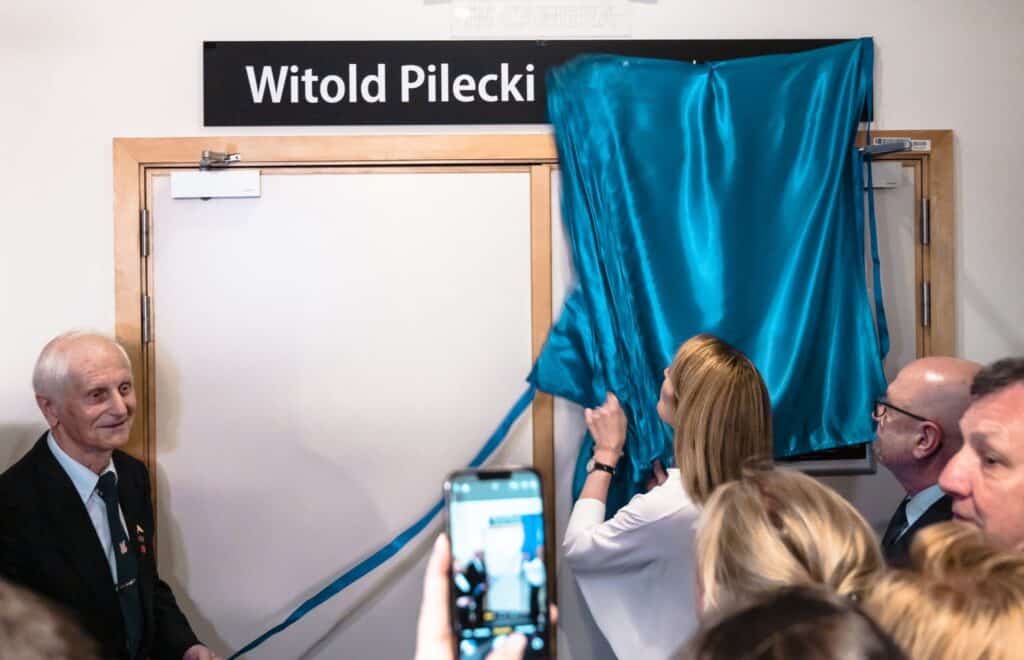
Witold Pilecki’s story is one of courage and sacrifice, and a meeting room of the European Parliament has just been inaugurated with his name, 75 years after being executed by Stalin. President of the Parliament Roberta Metsola was present together with different MEPs from different groups, but especially from ECR (Anna Fotyga), as that is the room where they do their group meetings.
Witold Pilecki meeting room inaugurated at the European Parliament
On May 31st, a room has been inaugurated with name at the European Parliament. A ceremony Has been be held to name the ECR Group meeting room, SPAAK 1A002, in honour of Witold PILECKI, a Polish World War II officer, intelligence agent and resistance fighter who fiercely resisted both Nazism and Communism and whose opposition to totalitarian regimes represents the core values underpinning European integration. Roberta Metsola, EP President attended the ceremony alongside ECR Co-Chairmen Ryszard LEGUTKO, and Mr Marek OSTROWSKI, nephew of Witold PILECKI.
Metsola said during the ceremony:
Today we are here to honour a hero of the 20th century, Witold PILECKI. As a true example of perseverance, he played a pivotal role in shaping Poland’s future. He stood up to totalitarianism as a soldier who fought Nazism, distinguishing himself during the Warsaw uprising against the onslaught of German soldiers. He survived the horrors of Auschwitz. He documented what he saw and what he learned. He resisted the Soviet occupation and withstood horrific torture at the hands of the communist authorities. They thought that by executing him, they could extinguish his light.




Ryszard Antoni LEGUTKO (ECR, PL), Head of ECR group said that:
It’s very difficult to to talk about piece. At least my language fails me. What he did, his heroism extends goes beyond our imagination. What also exceeds the imagination is the evil he faced. He died. Or rather, he was murdered in defiance of the two most devilish inventions of the 20th century. German National Socialism and. And communism. The Communist who murdered him believed that with his death, the memory of him, all about him would be wiped out forever.
Witold Pilecki was a Polish resistance fighter who volunteered to be imprisoned in Auschwitz during World War II. His mission was to gather intelligence and organize a resistance movement from within the camp. Pilecki’s bravery and sacrifice helped to expose the atrocities of the Holocaust and inspire others to resist Nazi oppression. Learn more about this heroic figure and his legacy.
As part of the ceremony, Marek OSTROWSKI, nephew of Witold PILECKI stressed that:

As a little boy, I encountered him during the German occupation. I believe that this was a giant man who, despite such difficult and difficult times, has done so much. Imagine that thanks to his reports, which flowed from Auschwitz and in these reports, the names and names of the greatest gardeners of the German SS men were given. And the BBC reported that via radio, that after the war they would be tried as war criminals, it changed collective responsibility for escaping from Auschwitz.
Znajac biografie Pileckiego, jego odwage, idealy i postawe w obliczu barbarzynskich totalitaryzmow, o wiele latwiej mozna zrozumiec polskie doswiadczenia, nasza wrazliwosc. Jestem przekonana, iz Europa potrzebuje tak nieskazitelnych patronow jak Rotmistrz Pilecki, gdyz tylko… pic.twitter.com/HbHa2xuCub
— Anna Fotyga Biuro Poselskie (@AnnaFotyga_PE) May 31, 2023
Early Life and Military Service
Witold Pilecki was born on May 13, 1901, in the town of Olonets in the Russian Empire (now part of Russia). He grew up in a patriotic family and was educated in Poland. In 1918, he joined the Polish military and fought in the Polish-Soviet War. He continued his military service in the interwar period, rising to the rank of captain. When Germany invaded Poland in 1939, Pilecki joined the underground resistance movement and began his mission to infiltrate Auschwitz.
Infiltrating Auschwitz
Witold Pilecki’s most famous mission was his infiltration of Auschwitz, the Nazi concentration camp. In 1940, he volunteered to be arrested and sent to the camp, where he spent the next two and a half years gathering intelligence and organizing a resistance movement. Pilecki’s reports on the atrocities committed at Auschwitz were some of the first to reach the Allies, and his actions helped to expose the horrors of the Holocaust to the world. Despite the danger, Pilecki continued his resistance work until he was discovered and executed by the Nazis in 1948.
Gathering Intelligence and Organizing Resistance
Witold Pilecki’s bravery and dedication to the resistance movement during WWII is truly remarkable. His mission to infiltrate Auschwitz and gather intelligence on the atrocities committed there was a dangerous and selfless act. But Pilecki didn’t stop there. He also organized a resistance movement within the camp, providing hope and support to fellow prisoners. His actions helped to expose the horrors of the Holocaust to the world and inspired others to resist. Pilecki’s legacy as a hero and symbol of resistance continues to inspire people today.
Escape and Continued Resistance
After nearly three years in Auschwitz, Pilecki managed to escape in April 1943. He continued his resistance work, joining the Home Army and fighting in the Warsaw Uprising in 1944. Despite being captured by the Germans and sentenced to death, Pilecki’s legacy lived on. His reports from Auschwitz were used as evidence in the Nuremberg Trials, and his story continues to inspire people around the world to stand up against oppression and fight for what is right.
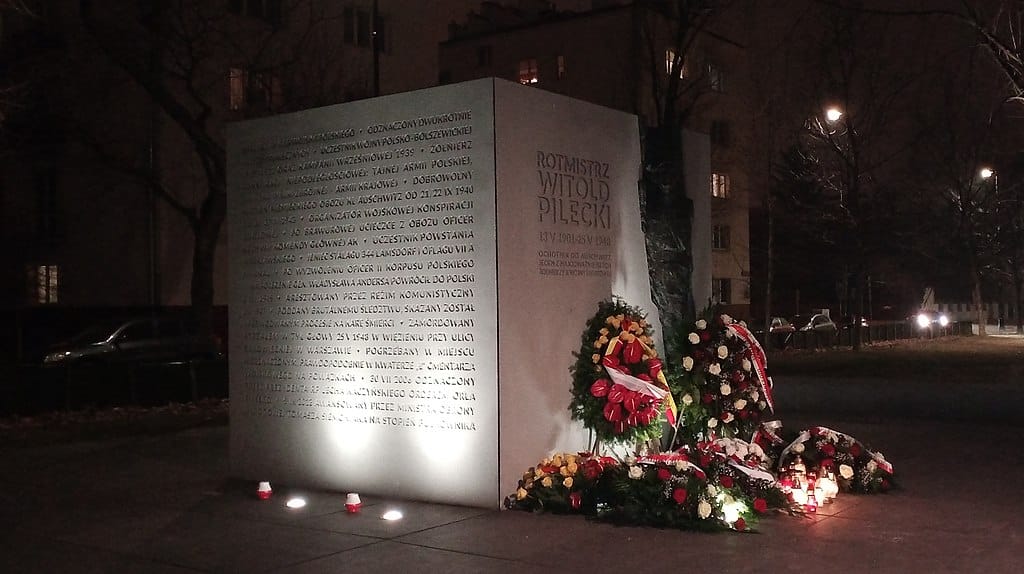
Legacy and Recognition
Witold Pilecki’s legacy as a hero of WWII has been recognized in various ways. In 2006, he was posthumously awarded the Order of the White Eagle, Poland’s highest civilian honour. In 2013, a monument was erected in his honour in Warsaw. Pilecki’s story has also been told in books, documentaries, and films, ensuring that his bravery and sacrifice will never be forgotten. His actions continue to inspire people to stand up against injustice and fight for freedom and human rights. And now, in 31st May 2023, a meeting room of the European Parliament has been given his name.
Politics
EU changes protection status of wolves in Europe
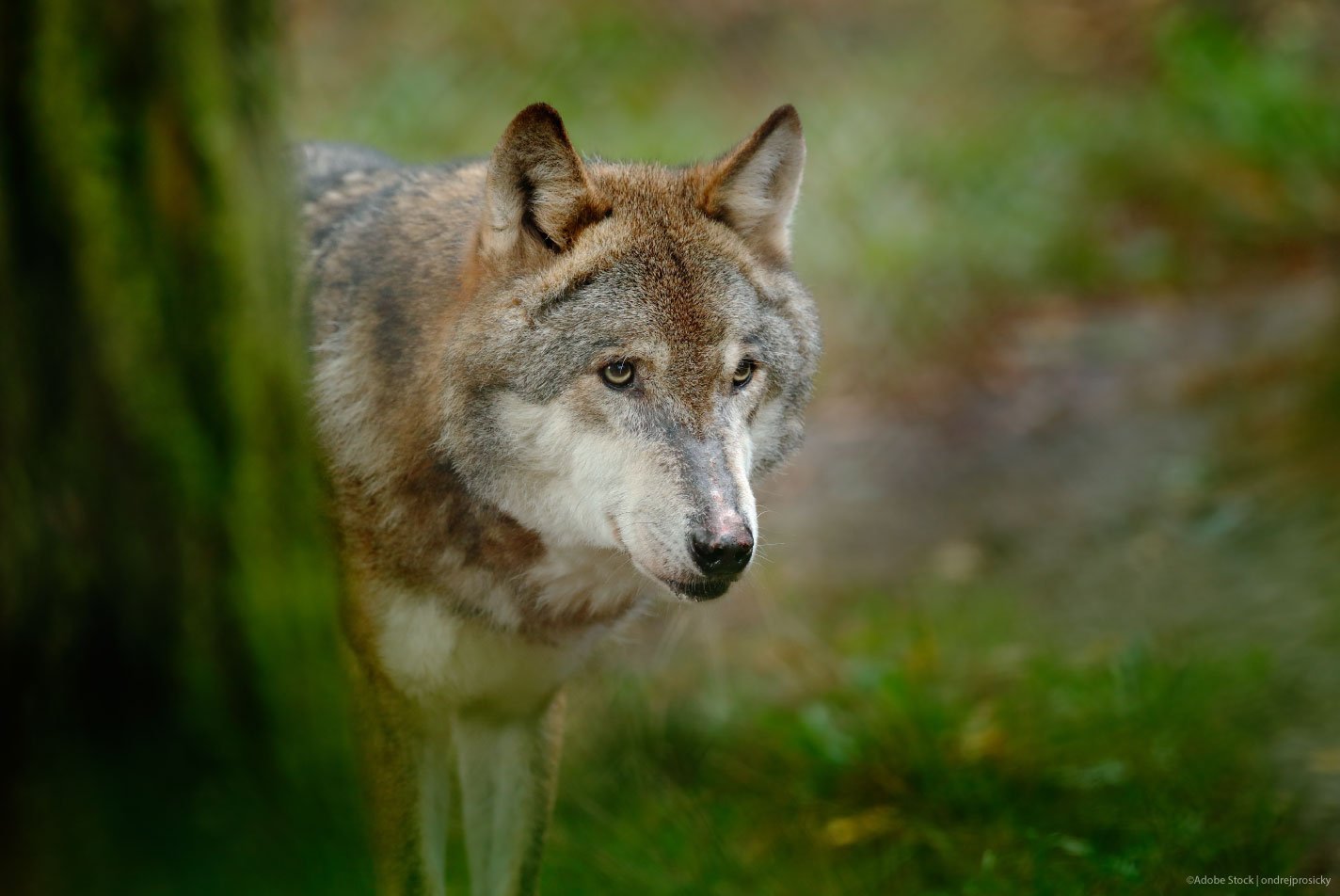
DISCLAIMER OPINIONS: The opinions of the authors or reproduced in the articles are the ones of those stating them and it is their own responsibility. Should you find any incorrections you can always contact the newsdesk to seek a correction or right of replay.
DISCLAIMER TRANSLATIONS: All articles in this site are published in English. The translated versions are done through an automated process known as neural translations. If in doubt, always refer to the original article. Thank you for understanding.
DISCLAIMER PHOTOS: We mostly used photos images that are readily available online, from free sources, or from the people promoting the news. If by any chance it happens that we have used one of your copyrighted photos, please do not hesitate to contact us and we will take it down without question. We do not make profits as this is a not for profit project to give voice to the voiceless while giving them a platform to be informed also of general news, and it is completely free.
Politics
Commission adopts Ocean Pact to protect marine life and strengthen blue economy
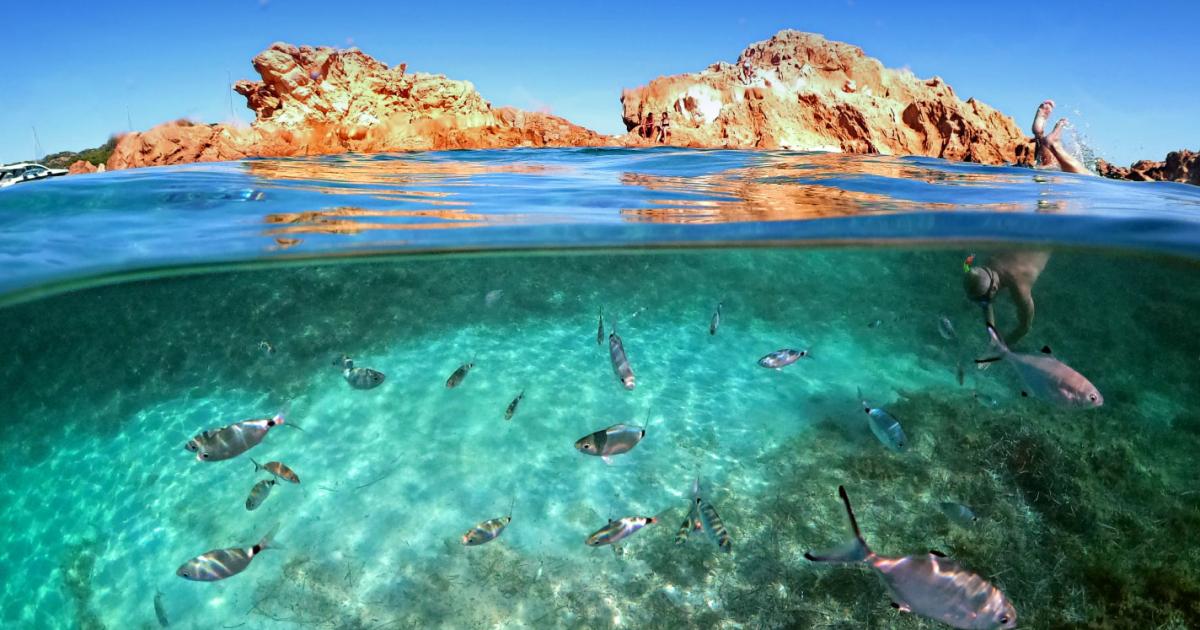


DISCLAIMER: Information and opinions reproduced in the articles are the ones of those stating them and it is their own responsibility. Publication in The European Times does not automatically means endorsement of the view, but the right to express it.
DISCLAIMER TRANSLATIONS: All articles in this site are published in English. The translated versions are done through an automated process known as neural translations. If in doubt, always refer to the original article. Thank you for understanding.
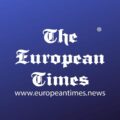
– Advertisement –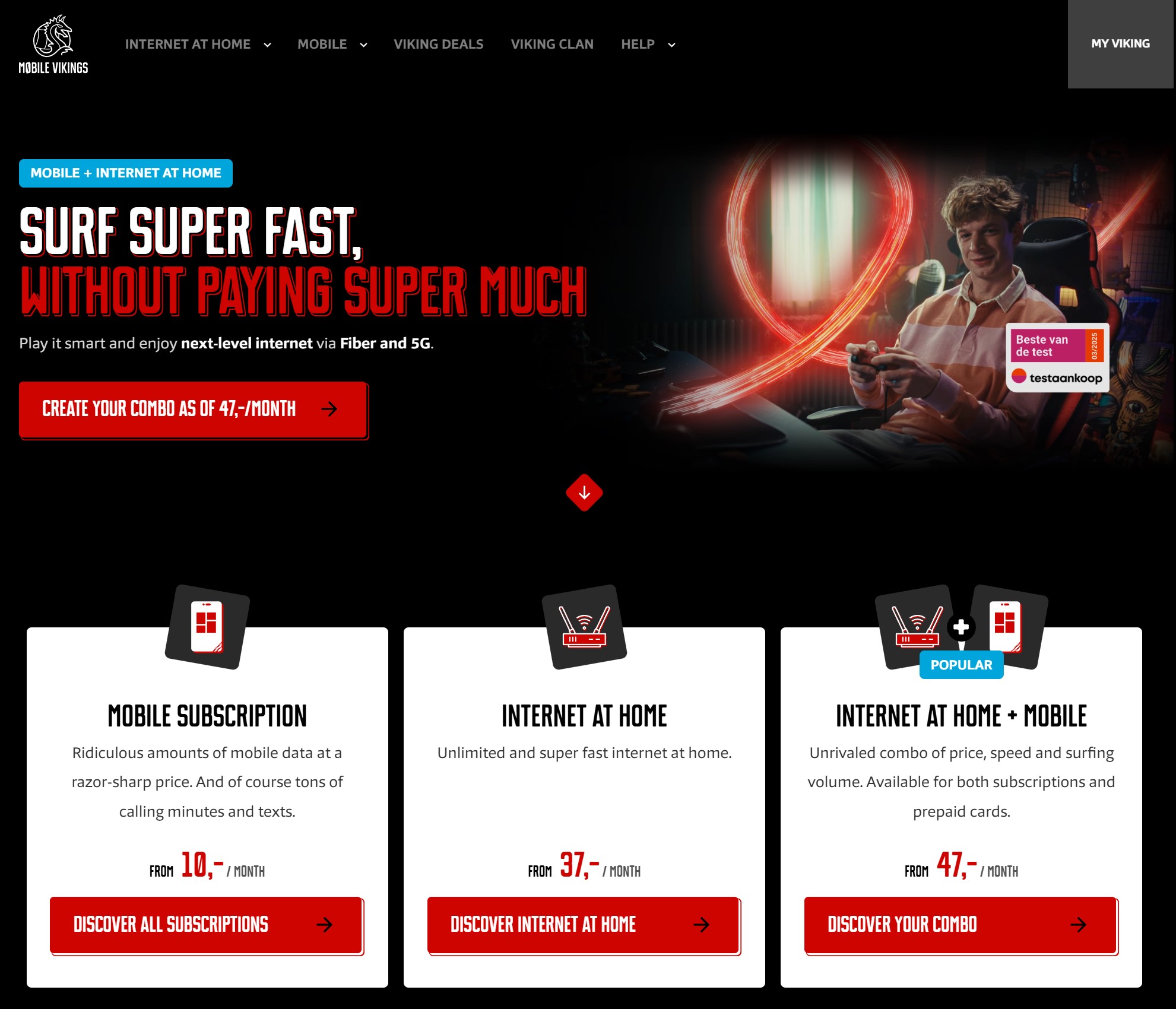
– Advertisement –
The ocean shapes our economies, our food systems, even the air we breathe. To better protect our ocean, the Commission has adopted a European Ocean Pact, which will help to promote a thriving blue economy and support the well-being of people living in coastal areas.
This Ocean Pact brings together EU ocean policies under one single and coordinated framework. It will do so through a collaborative approach between EU countries, regions, and stakeholders, including fishers, innovators, investors, scientists, and civil society. Six priority areas for action will define this work, namely
- protecting and restoring ocean health by supporting EU countries in their efforts to restore degraded coastal marine habitats
- boosting the competitiveness of the EU sustainable blue economy including by strengthening the EU’s maritime industry and by introducing a Blue Generational Renewal Strategy, to foster access to young professionals in marine research, ocean tech, and sustainable fisheries
- supporting coastal and island communities, and outermost regions by presenting new or updated strategies for these regions and communities
- enhancing maritime security and defence by strengthening EU coast guard cooperation and maritime border security
- advancing ocean research, knowledge, skills and innovation by proposing an ambitious EU Ocean Observation Initiative
- strengthening EU ocean diplomacy and international ocean governance by stepping up its fight against illegal, unreported and unregulated fishing
The European Ocean Pact will be complemented by an ocean act by 2027, which will help to ensure the implementation of the priorities of the pact. An EU Ocean Pact dashboard will be used to track progress.
For more information
Press release: Commission adopts European Ocean Pact for a healthy ocean, a competitive blue economy and thriving coastal communities
More information about the European Ocean Pact
Source link
More from the author
– EXCLUSIVE CONTENT –
Politics
The European Union and the Republic of Moldova confirm their strong partnership at the 9th EU-Moldova Association Council meeting
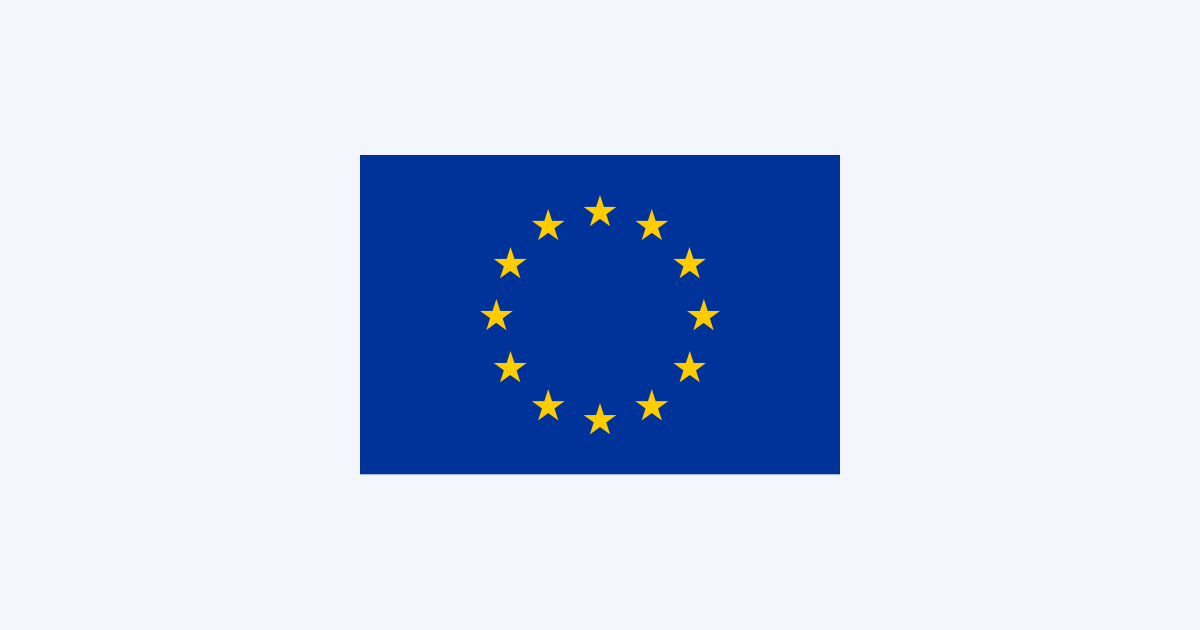

© FRVS+MPCP 2022. The European Times® News is registered as an EU Trademark. All rights reserved. The European Times® and the logo of The European Times® are EU trademarks registered by FRVS+MPCP.
Members/Partners of

About Us
Popular Category
DISCLAIMER OPINIONS: The opinions of the authors or reproduced in the articles are the ones of those stating them and it is their own responsibility. Should you find any incorrections you can always contact the newsdesk to seek a correction or right of replay.
DISCLAIMER TRANSLATIONS: All articles in this site are published in English. The translated versions are done through an automated process known as neural translations. If in doubt, always refer to the original article. Thank you for understanding.
DISCLAIMER PHOTOS: We mostly used photos images that are readily available online, from free sources, or from the people promoting the news. If by any chance it happens that we have used one of your copyrighted photos, please do not hesitate to contact us and we will take it down without question. We do not make profits as this is a not for profit project to give voice to the voiceless while giving them a platform to be informed also of general news, and it is completely free.
Editor Picks
-
EU & the World4 days ago
Aurora Borealis Forecast: Where & When to See the Northern Lights Tonight
-
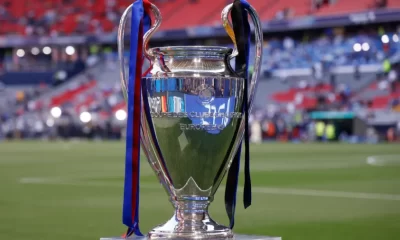
 Sports6 days ago
Sports6 days agoChampions League Final 2024-2025: PSG-Inter, official lineups
-
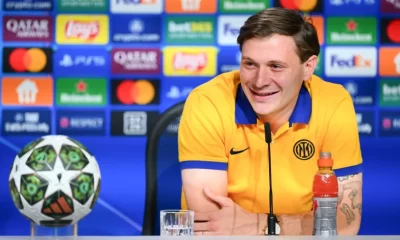
 Sports7 days ago
Sports7 days agoPSG-Inter, Nicolò Barella jokes about Gianluigi Donnarumma
-
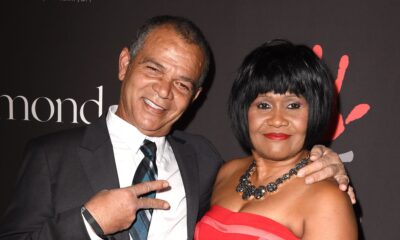
 EU & the World5 days ago
EU & the World5 days agoRihanna’s Parents: About Her Late Dad Ronald Fenty & Mom Monica Braithwaite
-
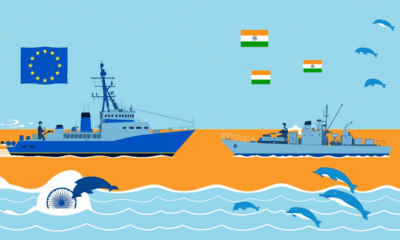
 Politics6 days ago
Politics6 days agoEU and India Forge Deeper Maritime Ties with Historic Joint Naval Exercise in the Indian Ocean
-
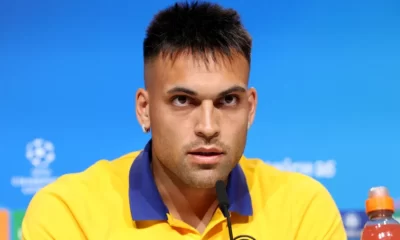
 Sports7 days ago
Sports7 days agoPSG-Inter, Lautaro Martinez unveils recipe for finals
-

 Sports5 days ago
Sports5 days agoOfficial: Damien Comolli new general manager of Juventus.
-
Travel7 days ago
France saw record night train passengers in 2024, but can it keep up with booming demand?









